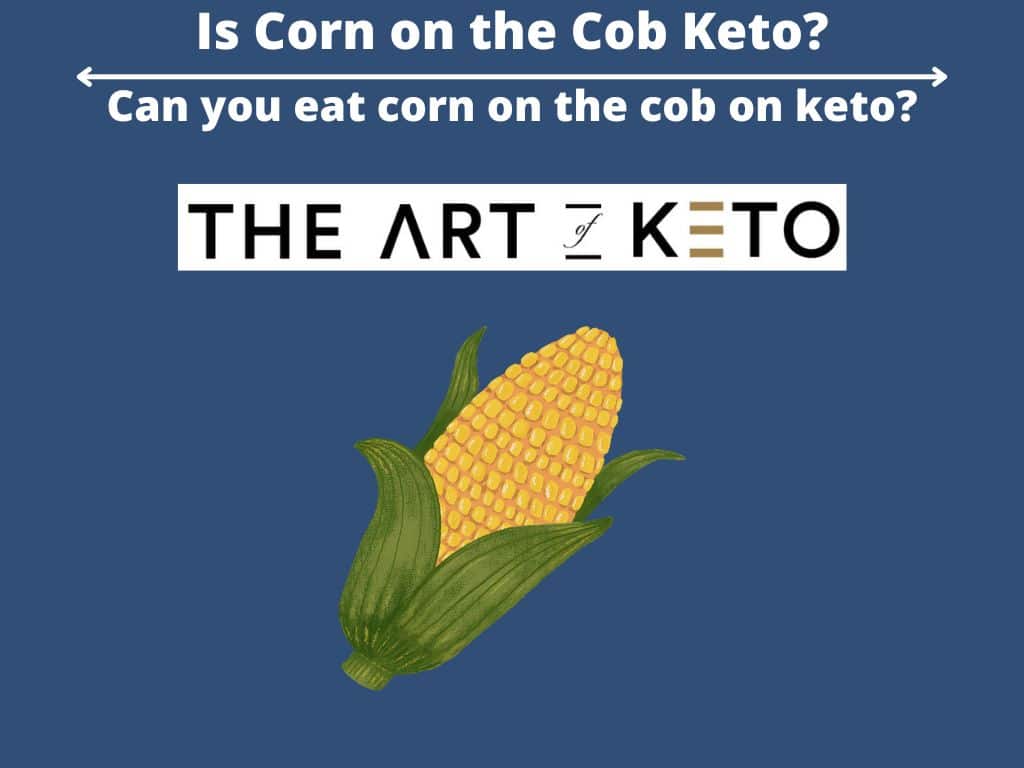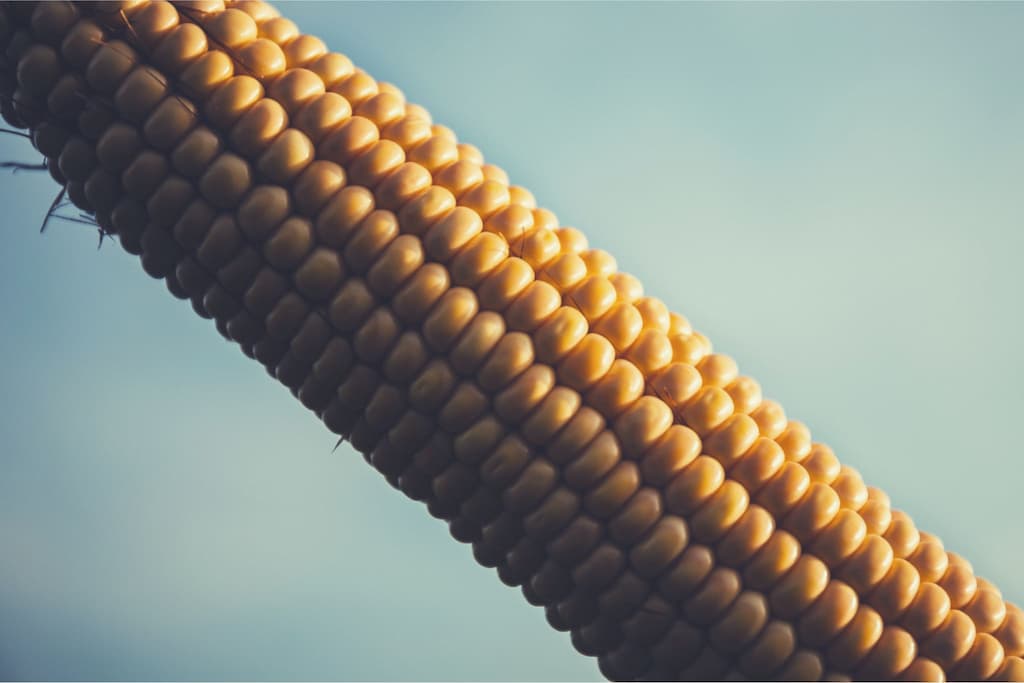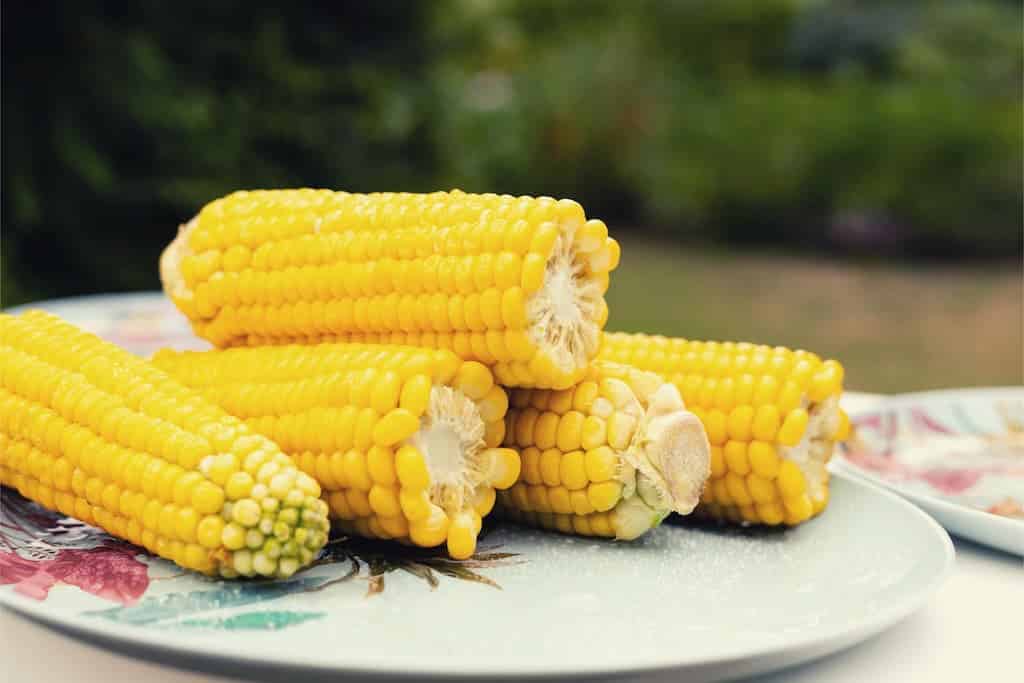If you're looking for a diet where you lose weight, have energy all around the clock, and feel good about yourself, look no further. You have come to the best solution possible; that's a Keto-diet!
In a nutshell, a keto diet is one where there's a rich and high supply of healthy fats to a body, substituting a low and small need for carbohydrates, and essentially all of this is done to bring your body into a state of ketosis. The significant decrease in carbs and the simultaneous increase in fats amounts to about 75% of the required daily calories of the body.

Let’s dive in and discover more about this diet that is doing wonders for people and find out about foods that are keto friendly and foods that are not. We'll answer questions like “Is Corn on the Cob Keto?” so let’s get started!
What is a Keto diet, and how does it work?
A keto diet is essentially one where you change how your body uses up its energy sources, from carbs to mainly fats. The fats substitute the majority of the body’s daily calories. The energy derived from fats can amount to 75% of the body’s daily calorie requirement, whereas the leftover 25% comprises proteins and carbohydrates.
The equation becomes something like this when you’re on a keto diet:
- 75% of the calories of the body come from fats
- 20% of the calories of the body come from proteins
- About 5% of the calories of the body come from carbs (20 grams – 50 grams of carbs daily)
The great reduction in carbs forces the body to target and start utilizing glycogen storage, which becomes the body's primary energy source. In turn ketones or fats become the daily fuel the body needs to burn to survive.
This mechanism is called ketosis, where the body's stored fat is used instead of carbs. Keto friendly foods are generally very filling and more satiating than those foods which are carbs. This diet attains results very quickly, and the fat-burning ability leads to speedy weight loss, which has health benefits.
The benefits are:
- Clearer and better mental clarity.
- Reduced risk of developing Alzheimer’s disease.
- Reduced chances of developing heart disease.
Moreover, this diet makes you feel energetic and active and gives you the daily energy you need to keep moving and staying fresh and alert.
What is Corn on the Cob?
Corn on the cob is another way of saying cooked sweet Corn or Corn that is eaten off the cob directly. The Corn is picked while the endosperm is still at the “milk stage, ” meaning the kernels inside the Corn are soft and tender. These corns are usually boiled, grilled, or even steamed. You can even roast them once you remove the green outer layer. The leaves and the husks are cut before eating.

This delicious Corn is eaten when it is warm and can be seasoned with some pepper, salt, and butter too! It's a trend to drive a skewer through the Corn to prevent people from touching the hot Corn and using the skewers to quickly eat the Corn without hurting themselves.
Nutritional Information of Corn on the Cob
A medium-sized ear of 103 grams has the following nutritional value:
- Calories: 99 calories per serving
- Total Fat: 1.5 grams of fat
- (Saturated fat: 0.2 grams
- Polyunsaturated fat: 0.6 grams
- Trans fat: 0 grams
- Monounsaturated fat: 0.4 grams)
- Cholesterol: 0 milligrams
- Sodium: 261 milligrams
- Potassium: 225 milligrams
- Total Carbohydrates: 22 grams of carbs
- (Dietary Fiber: 2.5 grams
- Sugars: 4.7 grams)
- Protein: 3.5 grams
- Vitamin A: 5.4%
- Vitamin C: 9.4%
- Calcium: 0.2%
- Iron: 2.6%
How is Corn on the Cob prepared?
There are a lot of ways you can prepare this delicious Corn. The methods include boiling, frying, grilling, baking, and roasting the Corn. You can grill the Corn directly with its husk not removed, or you can remove the husk and cover the Corn in a foil wrap of Aluminum. If you want to roast the Corn in an oven, then you should roast it with the husk, not removed.

On the other hand, if you want to grill the Corn, don’t forget to remove the husk and rub the Corn with butter that is melted or use oil, and then put the Corn back in the husk and securely tie it, so it doesn’t open. If you want a quick fix and don’t feel like making all the effort of grilling or frying, then you can even microwave the Corn for 4 minutes with the Corn still inside the husk. You can use black pepper, butter, and salt as seasonings!
Is Corn on the Cob Keto Friendly?
Generally, no corn is not a keto friendly food. This food contains starch and a series of complex carbs, and you should avoid Corn at all costs if you're doing a low-carb keto diet. About one cup (of 165 grams) of cooked and canned Corn contains about 24 grams of carbs and only 3% fiber. Corn is a rich supply of Potassium and Magnesium.
If you want to make Corn a part of your keto diet, there is a way! Despite having 23 grams of carbs in one serving, if you're going to keep Corn in the mix, you have to include a workout and some activity, so you can stay in ketosis and enjoy this meal. This way, you can keep checking your ketone levels and determine if you're still in ketosis or not.

It's recommended that people who are allergic to Corn or are on a paleo keto diet should stay away from Corn at all costs. Corn is not keto-friendly because it has a high amount of carbs, and once you season it with salt and butter, the net amount of carbs goes up, making it unfriendly and unsafe for a low-carb keto diet.
Nutritional Information of Corn
Corn is a very nutrition-rich and energy-packed food. It is high in carbohydrates but is rich in fiber, minerals, and vitamins. It is worthwhile mentioning that it is low in fats and proteins. One cup of about 164 grams of Corn has the following nutritional value:
- Calories: 177 calories
- Protein: 5.4 grams
- Carbs: 41 grams
- Fat: 2.1 grams
- Fiber: 4.6 grams
- Thiamine (Vitamin B1): 24% of the daily value
- Vitamin C: 17% of the daily value
- Folate (Vitamin B9): 19% of the daily value
- Magnesium: 11% of the daily value
- Potassium: 10% of the daily value
Should you include Corn if you are on a Keto diet or not?
If the nutritional value and low fats caught your eye and made you think about adding Corn to your keto diet, then it's probably not a good idea. As we told you earlier, one serving of Corn has about 23 grams of carbs, which makes it almost impossible to add Corn to your diet because it exceeds the daily carb limit when you're on keto.
It's better to have meals derived from healthy fats, such as coconut oil, avocado, olive oil, nuts, and seeds. You can also include leafy greens, vegetables with no starch, and good old-fashioned protein. As keto is a diet that consists of high fat, and low carbs coupled with protein in moderation, it isn’t ideal to eat Corn and expect to stay in ketosis. Corn will kick you out of ketosis!

It would be best if you didn’t eat Corn or try to incorporate it into your diet because of its carbs per serving. As keto is a low-carb diet, eating Corn will amount to too many carbs, ultimately defeating the entire purpose of keto. Secondly, eating Corn will result in your body falling out of the state of ketosis, switching from fats as the primary fuel source to carbs, which means no fat or weight loss.
So, it's best to avoid Corn and not eat it if you're on a keto diet.
Keto-Friendly Corn Alternatives
There are a few low-carb recommendations you can look to eat instead of Corn if you are on a keto diet. They are as follows:
- Riced Broccoli:This delicious cuisine can either be served hot, or it can be served cold. It can be used in many cuisines and dishes such as sushi rolls, salads, burritos, stir fry, and many more.This dish has low carbs and is an excellent alternative to a high-carb meal of Corn. It has various health benefits, such as the ability to fight cancer cells, it slows down aging, it improves the oral health of gums and teeth, it improves bone health, it reduces irritation in the skin, heals wounds much quicker, enhances the flow of blood, it improves eyesight, increases the metabolism and improves the functioning of hormones!This dish has only 35 calories and is packed with 6.5 grams of fat and 2 grams of protein.
- Cauliflower Rice: This dish has only 25 calories, half a gram of fat, and 2 grams of protein. It is rich in nutrients and contains Vitamin C, K, Folate, Magnesium, Potassium, and Phosphorus.
- Pork Rinds: These low-carb rinds are a great alternative to Corn. You can even make tortillas out of them. They are also an excellent substitution for bread and nachos. One ounce of pork has 154 calories (fried) with 9 grams of fat and 0 carbs.
Conclusion
Corn is a great meal to have because it is nutritious and tasty as well. But it is not such a great meal if you are on the keto diet, which is a diet that rids the body from dependency on carbs as the primary energy source. Instead, keto shifts the daily usage from carbs to fats, resulting in weight loss and other health benefits that come with losing weight.
Corn is too high in carbs, which is capable of landing one right out of ketosis and defeating the whole purpose of the keto diet. There are many healthy, low-carb, and better alternatives to Corn. You can look to use those and substitute them for Corn because Corn and keto are like water and oil. They don't mix. We hope this article informed you and helped you to understand how Corn is not recommended when you are on a keto diet.
Happy keto-ing!
Please click on one of the links below if you want to learn more about keto friendly foods: